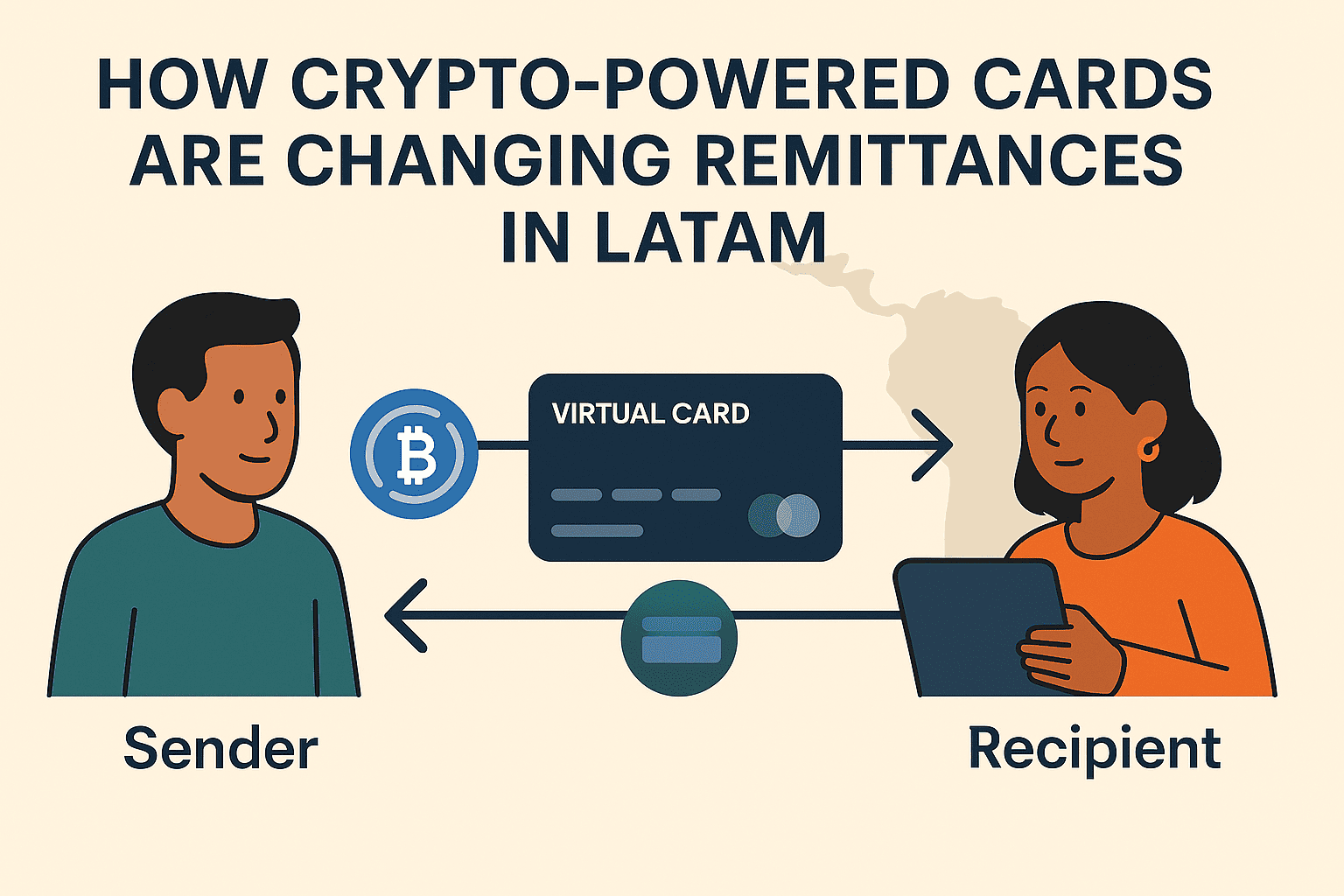
Remittances are a lifeline for millions of Latin American families. In countries like Mexico, El Salvador, and Colombia, billions of dollars flow in each year from relatives working abroad. But while the volume of remittances continues to grow, the tools to access and use that money often remain stuck in the past, slow, expensive, and inconvenient.
Today, that’s changing.
Crypto-powered cards are reshaping the remittance experience, enabling users to receive funds in stablecoins and spend them instantly, without needing a traditional bank account.
Here’s how it works, why it matters, and how platforms like Yativo are making this shift possible.
The Traditional Remittance Problem
Sending money to Latin America typically involves:
- High fees (5% to 10%) through money transfer operators
- Long wait times for bank transfers or cash pickups
- Currency conversion losses
- Lack of banking access for recipients
- Manual processes or physical travel to withdraw funds
For millions living in rural or underbanked areas, remittances are difficult to access, even when they arrive.
Why Crypto Is Changing the Game
Stablecoins like USDC and USDT have emerged as a faster, cheaper alternative to traditional remittance rails. With blockchain infrastructure, funds can move:
- Instantly
- Globally
- With near-zero fees
- Without intermediaries
But receiving crypto is only one half of the equation, spending it is the real challenge.
Enter: Crypto-Powered Cards
Crypto-powered cards bridge the gap between receiving digital assets and making real-world purchases. Here’s how:
✅ Instant Access to Funds
Users receive stablecoins, fund their card, and spend online, all in minutes, no banks needed.
✅ Global Online Spending
Cards issued on major networks (like VISA) can be used on e-commerce sites, subscriptions, and digital services worldwide.
✅ No Physical Delivery Required
Virtual cards are perfect for mobile-first users. No delays, no lost mail, no shipping issues in remote regions.
✅ Ideal for the Unbanked
No need for a bank account or credit history. KYC is handled through partner platforms, making onboarding seamless.
Real Impact in Latin America
- In El Salvador, where Bitcoin is legal tender but dollar access is still preferred, stablecoin cards help bridge the usability gap.
- In Mexico, workers receive stablecoins and use prepaid cards for everything from groceries to Netflix.
- In Argentina, where inflation erodes local currency, receiving USDC and spending via card offers stability and purchasing power.
These cards turn remittances into usable money, not just stored value.
How Yativo Makes It Easy
Yativo Card Issuing enables platforms to issue virtual VISA prepaid cards powered entirely by USDC or USDT.
Key features:
- Virtual-only, for online use only (no POS or NFC support)
- Up to $10,000 USD balance per card
- Instant issuance, no physical delivery delays
- Funded via your Yativo USD balance, using stablecoins
- Monthly cashback rewards in $TIVO tokens, sourced from interchange revenue
Remittance platforms, crypto wallets, and community savings apps can integrate Yativo’s API to offer users not just a way to receive funds, but a way to use them instantly.
Use Case: From the U.S. to LATAM
Imagine a remittance app serving users in California who send USDC to family in Colombia.
With Yativo:
- The recipient completes KYC and receives a virtual VISA card.
- USDC is sent and instantly available in their Yativo balance.
- The user funds their card and spends online, without needing a bank account or waiting in line.
- Each purchase earns cashback, creating a real incentive to adopt and keep using the product.
Final Thoughts
The future of remittances in LATAM isn’t just about sending money cheaper, it’s about giving recipients instant, dignified access to spending power.
Crypto-powered cards are unlocking that future. With tools like Yativo, fintechs and platforms can offer users in Latin America a smarter, faster, and more usable remittance experience.
👉 Learn more about Yativo Card Issuing
👉 Talk to our team to embed card issuing into your remittance product